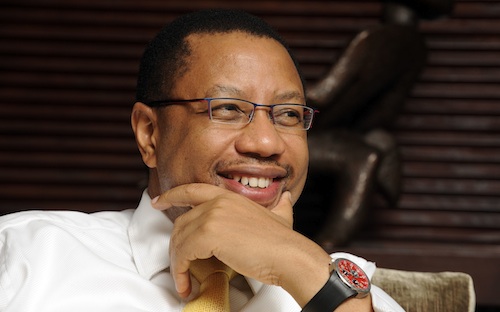
MTN president and CEO Phuthuma Nhleko has described suggestions that India’s Bharti Airtel poses a big threat to the JSE-listed telecommunications group’s interests in Africa as “exaggeration and oversimplification”.
Analysts this week raised concerns that Bharti, which recently acquired Zain’s African assets, could start a price war with MTN in several key markets, including Nigeria.
Ironically, MTN and Bharti held talks earlier this year about a merger, but those talks broke down. But Nhleko says the two parties didn’t come close to a deal as there were a wide range of commercial issues that weren’t resolved.
Zain, which is being rebranded as Airtel, has already slashed prices in Kenya in an effort to grab market share from Safaricom, the East African’s nation’s largest mobile operator.
There are concerns Bharti will take a similar approach in Nigeria, where MTN dominates with 51% market share. Nigeria is MTN’s largest and most profitable market.
“There are always perceptions — sensation and fiction — and then there’s reality,” Nhleko says in reply to a question from TechCentral on whether analysts’ views that Bharti is a threat to MTN are correct.
“There are clearly certain things that some operators, like Bharti, have that are worth emulating, like on the IT side where India’s always been very strong,” he says. “But there are a lot of things we do that are worth emulating as well.”
He says suggestions that Bharti can simply replicate its low-cost operating model across a range of markets in Africa are wrong. “The notion that you can take everything from one country and replicate it on a continent is not sound. Analysts say we are going to have a real challenge because Bharti is coming into our market — I think there is a high degree of simplification and exaggeration there.”
Nhleko says MTN is “quite comfortable” that the way it operates will “continue to put us in good stead against any competitor that comes in”.
“Every country has very different challenges and constructs that require you to adapt and sometimes change your model completely,” he says. “We can’t just take what we do in SA and replicate that in Syria or Iran.”
Besides, he says, MTN is making good strides to becoming a low-cost operator itself. It has adopted activity-based accounting to allow it to dissect and analyse costs at a granular level. It has is improving its supply chain management systems. It has created shared service centres to reduce overheads. And it is investigating infrastructure-sharing models “more aggressively than before”.
“MTN’s operational and capital expenditure on an annual basis is running at about R100bn,” he says. “There is a lot of scope for us to tighten things. There are a lot of things happening that will reduce our cost base.” — Duncan McLeod, TechCentral
- Subscribe to our free daily newsletter
- Follow us on Twitter or on Facebook




